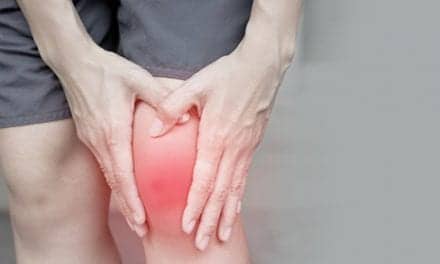Researchers at the University of Arizona Arthritis Center are undertaking a study that seeks to identify determinants of rapid knee deterioration thanks to a $3.4 million grant from the National Institutes of Health (NIH).
More than 32 million people in the U.S. have osteoarthritis, with the knee being one of the most commonly affected areas, according to the Centers for Disease Control and Prevention (CDC). No treatments are available to prevent the disease or halt its progression, due in part to challenges in identifying knees at highest risk for structural progression.
C. Kent Kwoh, MD, director of the UArizona Arthritis Center and chief of the Division of Rheumatology in the UArizona College of Medicine – Tucson’s Department of Medicine, part of UArizona Health Sciences, will lead the five-year study, “Identifying determinants of rapid structural and/or clinical progression in knee osteoarthritis by quantitative assessment of structural features on radiographs,” using funding from the National Institute of Arthritis and Musculoskeletal and Skin Diseases, a division of the NIH.
People have different experiences with knee osteoarthritis, with distinct paths in terms of symptoms and structural deterioration over time. The wide variation in these experiences presents challenges to studying potential treatments in clinical trials, particularly when different structural aspects of the knee are affected. The Food and Drug Administration historically has evaluated potential treatments based on how they impact joint space between the femur and the tibia as measured on an X-ray.
Researchers plan to start by describing distinctive paths of knee symptoms and structural deterioration over time in 10,000 study participants between the ages of 45 and 90. They hope to identify novel measures of knee structure on X-rays to help predict who experiences rapid knee deterioration, as well as the need for knee replacement in the future.
This work has the potential to improve the way new treatments for knee osteoarthritis are evaluated by identifying patients who are most likely to benefit; improving the way knee structure is measured; and contributing to the understanding of the different types of damage that lead to debilitating knee osteoarthritis.
Dr. Kwoh will lead a multidisciplinary research team that includes Edward J. Bedrick, PhD, professor of biostatistics in the UArizona Mel and Enid Zuckerman College of Public Health; Zong-Ming Li, PhD, associate director of the UArizona Arthritis Center and professor of orthopaedic surgery; and Xiaoxiao Sun, PhD, assistant professor of biostatistics in the Zuckerman College of Public Health; as well as collaborators with expertise in medical imaging, rheumatology and epidemiology at Harvard Medical School, the University of North Carolina, Boston University, Curtin University in Perth, Australia, and Lund University in Lund, Sweden.
This research is supported by the National Institute of Arthritis and Musculoskeletal and Skin Diseases, a division of the National Institutes of Health (1R01AR080742-01).
[Source: University of Arizona Health Sciences News]





